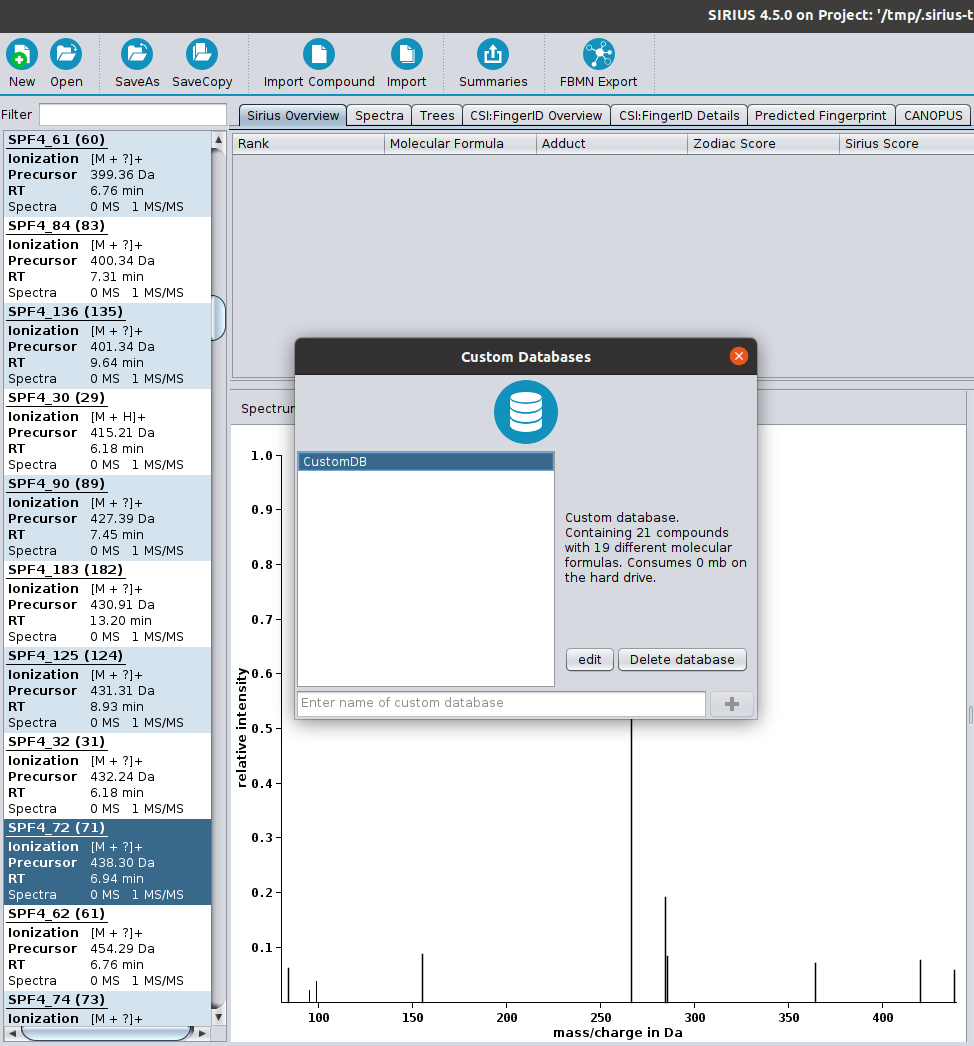We are happy to announce that a new version of SIRIUS is available. With that, CANOPUS now supports negative ion mode data. Additionally, we included more structure databases CSI:FingerID can search in, such as COCONUT (Sorokina & Steinbeck, 2020) and NORMAN (Brack et al., 2012). And in case an important database is missing: With the new version, you can import custom databases using the GUI.
Even more features:
- All molecular structures have been standardized using the PubChem standardization service, to make structures more consistent. This update was already reported for version 4.4 but kept bugging us; it should now be solved for good. The standardization has a (small but measurable) positive impact on CSI:FingerID’s performance. More importantly, you will find fewer cases where CSI:FingerID is doing “something really strange”; this strange behavior was often due to un-standardized structures.
- Breaking news: We renamed a few columns in the SIRIUS project space (see Changelog), to make column names more descriptive. Sorry about that; please make sure your downstream analysis is reading in the right columns.
- CSI:FingerID now uses the molecular formula-specific Bayesian network scoring from our ISMB 2018 publication. Integrating this new score was a huge effort, but again has a positive impact on CSI:FingerID’s performance.
- To allow for a smooth transition, you can continue to use SIRIUS 4.4 and the corresponding CSI:FingerID web service until November the 30th.
- Please help us to make SIRIUS great again: Report bugs using the SIRIUS GitHub repository, or send an email to sirius@uni-jena.de.




